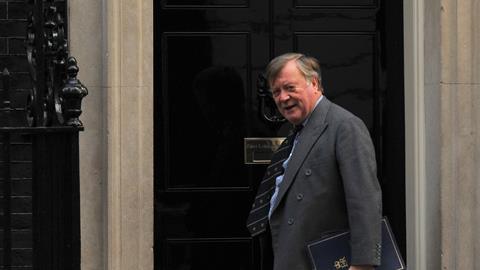Last week, the House of Lords threw out part 5 of the United Kingdom Internal Market Bill. In two late-night votes conducted remotely, clauses 42 to 47 were defeated by majorities of more than 250.

Such things simply do not happen – particularly during a bill’s committee stage. As peers were reminded by Lord True, a minister at the Cabinet Office, the six clauses had already been approved by MPs. ‘Your lordships have a right and a duty to revise,’ he told them, ‘but a responsibility not to wreck.’
The ‘wreckers’ were crossbench peers led by Lord Judge, the former lord chief justice. They were supported by the opposition parties, the bishops and around 40 Conservative rebels.
It was bad enough for the Supreme Court to uphold parliamentary sovereignty in the two cases brought by Gina Miller. If the House of Lords can get away with upholding the rule of law, Boris Johnson may well wonder who is running the country
None of this came as a surprise to the government. When the bill was first debated three weeks earlier, Judge had secured overwhelming support for what is called a motion of regret. He hoped this unusual move would persuade ministers to think again. It did not.
Lord Clarke of Nottingham QC (pictured), the former Conservative minister Ken Clarke, found ‘this lack of any reaction and the assumption of the government that they will probably get their way in the end, if they persist in parliament, quite remarkable’.
As Clarke explained, the deal negotiated by the prime minister allowed Northern Ireland to remain in the single market and customs union when the rest of the UK left. The whole point of it was a customs frontier down the Irish sea – if no agreement could be reached with the EU. It was not the deal Clarke would have wanted but it had been ratified by the government this year. Rather than wait for the outcome of negotiations with the EU, ministers were asking for absolute powers to break international law ‘just in case things go wrong’.
Lord Howard of Lympne QC, the former Conservative leader Michael Howard, dismissed government claims that the EU had been acting in bad faith. Where was the evidence? In any case, the agreement that ministers had signed last year contained its own procedures for resolving any disputes between the UK and the EU.
But it was Judge who faced up to the constitutional implications of what the government was trying to do. ‘We are being asked by the executive to give a minister authority to break international law, to subvert the rule of law, to damage our international reputation and to do so by secondary legislation… with minimal, merely theoretical, supervision by parliament and… effectively removed as far as possible from any examination into their lawfulness by the independent courts,’ he said. ‘When will we check the pernicious, subliminal process of allowing the sovereignty of parliament to be refashioned into the sovereignty of the executive?’
The answer turned out to be last Monday. What will the government do now?
In normal circumstances, MPs would reinstate part 5 and send the bill back to the Lords. There would be the usual game of ping-pong and the unelected chamber would back down.
Not this time. The government wants its legislation enacted before the EU transition period ends on 31 December. There is no time to deploy the Parliament Acts and push the bill through without the Lords’ consent. However, the fact that ministers made no attempt to head off the revolt suggest they are content to jettison part 5 of the bill. After all, it is only a safety net. It won’t be needed if there is a deal.
The long-term impact is harder to assess. Among peers who voted against part 5 was Lord Neuberger, former president of the Supreme Court. I suggested to him last month that if peers blocked legislation passed by the Commons it would – perhaps should – threaten the future of parliament’s unelected chamber.
‘I find it difficult to understand how it can be wrong, in principle, for the House of Lords ever to exercise a power which is specifically given under the current constitutional settlement,’ Neuberger replied.
The prime minister and his advisers may beg to differ. We are surely closer to an elective dictatorship than we were when Lord Hailsham of St Marylebone used that phrase as the title of a BBC lecture he gave in 1976. ‘Until recently,’ the former lord chancellor observed nearly 45 years ago, ‘the powers of government within parliament were largely controlled either by the opposition or by its own backbenchers. It is now largely in the hands of the government machine, so that the government controls parliament and not parliament the government.’
And now the government has blown it. It was bad enough for the Supreme Court to uphold parliamentary sovereignty in the two cases brought by Gina Miller. If the House of Lords can get away with upholding the rule of law, Boris Johnson may well wonder who is running the country.
joshua@rozenberg.net
































20 Readers' comments